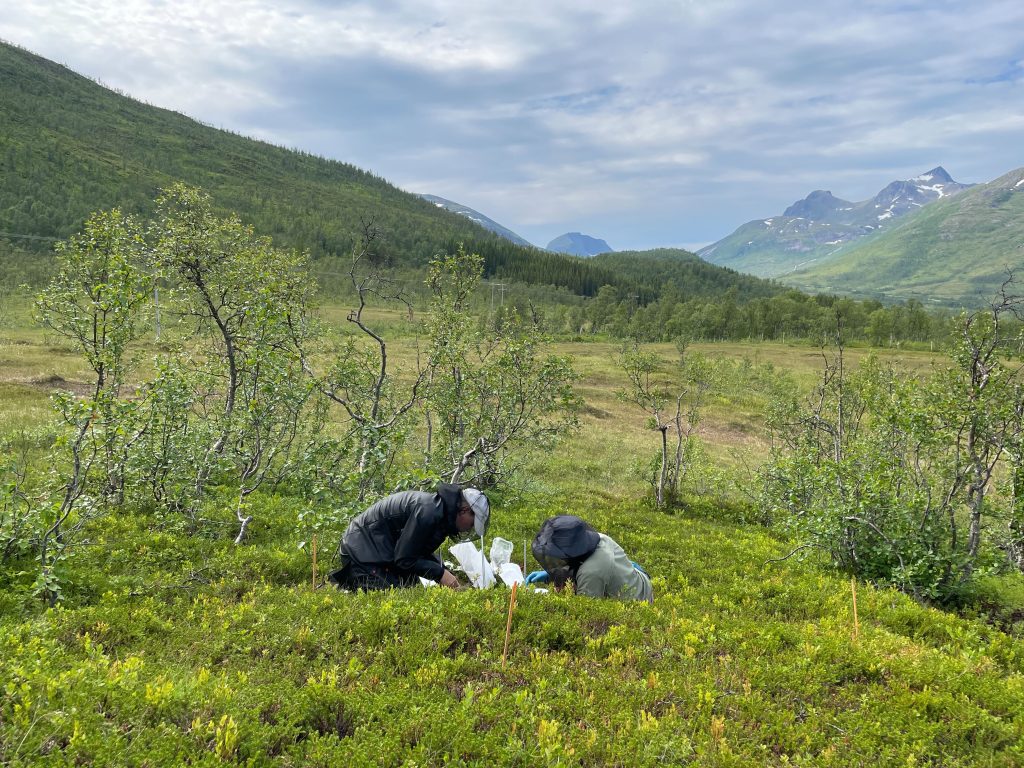Are you interested in plant functional types and ecosystem modelling? Come work with us!
Dwarf-shrubs are a dominant plant functional group across the boreal, arctic and alpine biomes, and they play important roles for biodiversity, ecology and ecosystem functioning in the habitats in which they occur. For example, dwarf-shrubs provide important food resources for grazers, pollinators, and people and habitat for other plants, insects, rodents, and birds. Through interactions with fungal symbionts in the soil (ericoid mychorriza), they play critical roles in ecosystem carbon sequestration and carbon storage, with implications for feedbacks from terrestrial ecosystems to the global climate system. DURIN will explore the role of dwarf-shrubs in climate responses and feedbacks across biomes and habitats in Norway, integrating plant physiology, ecology, and ecosystem science. Using distributed observational systems, field experiments, and growth chamber studies, we will obtain fundamental knowledge on how climate change directly and indirectly affects this important plant functional group, and its ecosystem functions and services. This improved process understanding will be integrated in land surface and earth system models to understand the role and contribution of dwarf-shrubs in the feedbacks from terrestrial vegetation to the climate system.
DURIN explores the role of dwarf-shrubs in climate responses and feedbacks across biomes and habitats in Norway, integrating plant physiology, ecology, and ecosystem science. Using distributed observational systems, field experiments, and growth chamber studies, we will obtain fundamental knowledge on how climate change directly and indirectly affects this important plant functional group, and its ecosystem functions and services. This improved process understanding will be integrated in land surface and earth system models to understand the role and contribution of dwarf-shrubs in the feedbacks from terrestrial vegetation to the climate system.
The Postdoctoral Research Fellow will be working within WP4 (Climate feedbacks: The CLM-FATES platform), focussing on improving the representation of dwarf-shrubs as a plant functional type in terrestrial ecosystem model CLM-FATES. The candidate will, for example:
- Improve the parameterization of dwarf-shrub plant functional type (PFT) in CLM-FATES and calibrate the model at DURIN observation sites.
- Conduct model experiments at regional and global scales to explore the response of dwarf-shrubs to climate changes.
- Run model simulations with dwarf-shrub PFT to assess the role of dwarf-shrubs in both biochemical and biophysical climate feedbacks.
- Lead and contribute to publications arising from the work.
- Collaborate with other ecologists and climate scientists over synthesis and upscaling.
- Use open and transparent workflows to manage, analyse, and openly share data.
- Further develop CLM-FATES platform (https://github.com/NorESMhub/noresm-land-sites-platform) for site simulations and model-data integration.
This is a collaborative project between the University of Bergen and collaborators from CICERO and Finnish Meteorological Institute (FMI). The postdoctoral research fellow will be working closely with both institutions, including opportunities for extended works stays in these institutes for setting up modelling and analytical work.
For more details and to apply, visit the official announcement on jobbnorge.no
Durin fieldwork on Senja, July 2023


